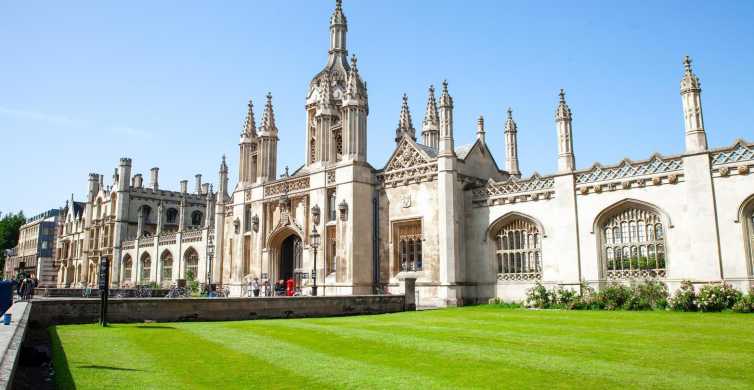**The University of Cambridge: A Beacon of Academic Excellence and Historical Significance**
The University of Cambridge, established in 1209, stands as one of the world’s oldest and most prestigious academic institutions. Nestled in the picturesque city of Cambridge, England, this venerable university has been a crucible of intellectual and scientific advancement for over eight centuries. Its rich history, distinguished alumni, and unwavering commitment to academic excellence make it a paragon of higher education.
Historical Overview
The University of Cambridge’s origins trace back to a group of scholars who left the University of Oxford due to a dispute with local townspeople. Seeking refuge, they settled in Cambridge and formed what would become a beacon of learning and innovation. Official recognition came in 1231 when King Henry III granted Cambridge a charter, establishing it as a recognized institution of higher learning.
Throughout the medieval period, Cambridge expanded both physically and intellectually. The establishment of colleges, beginning with Peterhouse in 1284, created a unique collegiate system that persists today. These colleges, semi-autonomous entities under the broader university umbrella, fostered a close-knit academic community, encouraging rigorous scholarship and vibrant debate.
Academic Structure and Excellence
Cambridge’s academic structure is divided into various schools, faculties, and departments, each specializing in different areas of study. The university offers a broad spectrum of undergraduate and postgraduate programs across disciplines such as humanities, social sciences, natural sciences, engineering, and medicine.
The tutorial system, a hallmark of Cambridge education, pairs students with faculty members for intensive, personalized instruction. This system ensures that students receive tailored guidance, fostering critical thinking and deep understanding. Moreover, the university’s libraries, including the world-renowned Cambridge University Library, house millions of books and manuscripts, providing invaluable resources for research and study.
Research and Innovation
Cambridge’s contribution to global knowledge and innovation is unparalleled. The university boasts over 100 Nobel laureates among its alumni and faculty, a testament to its impact on fields ranging from physics and chemistry to medicine and economics. Notable scientific achievements associated with Cambridge include Sir Isaac Newton’s formulation of the laws of motion and gravitation, Charles Darwin’s theory of evolution by natural selection, and the discovery of the structure of DNA by James Watson and Francis Crick.
In addition to individual achievements, Cambridge is home to numerous research centers and institutes that drive cutting-edge research. The Cavendish Laboratory, for instance, has been at the forefront of physics research for over a century, contributing to groundbreaking discoveries in atomic structure and quantum mechanics. The university’s commitment to interdisciplinary research is evident in initiatives like the Cambridge Institute for Sustainability Leadership and the Cambridge Centre for Data-Driven Discovery, which address global challenges through collaborative approaches.
Cultural and Social Impact
Beyond academia, the University of Cambridge has significantly influenced culture, politics, and society. Its alumni include eminent writers like John Milton and Virginia Woolf, influential economists like John Maynard Keynes, and political leaders like Jawaharlal Nehru and Stephen Hawking. The intellectual environment at Cambridge has nurtured critical thinkers who have shaped public discourse and policy worldwide.
The university’s cultural impact extends to the arts and sports as well. The Cambridge Footlights, an amateur theatrical club, has launched the careers of numerous renowned comedians and actors, including members of Monty Python. In sports, the annual Boat Race between Cambridge and Oxford, first held in 1829, remains one of the most celebrated traditions in British rowing.
Cambridge Today: A Global Institution
In the 21st century, the University of Cambridge continues to evolve, embracing its role as a global leader in education and research. The university attracts students and faculty from around the world, fostering a diverse and inclusive academic community. International collaborations and partnerships enhance its research capabilities and extend its influence across continents.
Cambridge’s commitment to accessibility and inclusion is reflected in its outreach and scholarship programs. Efforts to widen participation ensure that students from all backgrounds have the opportunity to benefit from a Cambridge education. The Gates Cambridge Scholarships, established by a donation from the Bill and Melinda Gates Foundation, provide full funding for outstanding international postgraduate students, enabling them to pursue their academic goals at Cambridge.
Challenges and Future Prospects
Despite its many successes, the University of Cambridge faces challenges common to leading academic institutions. Balancing tradition with innovation, ensuring financial sustainability, and maintaining its competitive edge in a rapidly changing global landscape are ongoing concerns. The university’s strategic initiatives, such as the development of the West Cambridge site as a hub for scientific research and innovation, demonstrate its proactive approach to addressing these challenges.
Environmental sustainability is another key focus, with the university committed to achieving a significant reduction in its carbon footprint. Initiatives like the Cambridge Zero climate change initiative underscore its dedication to addressing pressing global issues through research, education, and operational practices.
Conclusion
The University of Cambridge stands as a testament to the enduring power of knowledge and the transformative impact of education. Its storied history, distinguished alumni, and unwavering commitment to excellence have cemented its reputation as one of the world’s leading universities. As it continues to adapt to the challenges of the modern world, Cambridge remains a beacon of intellectual curiosity and innovation, inspiring generations of scholars to push the boundaries of human understanding and make a lasting impact on society.



